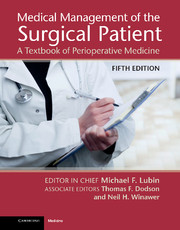Book contents
- Frontmatter
- Dedication
- Contents
- List of Contributors
- Preface
- Introduction
- Part 1 Perioperative Care of the Surgical Patient
- Part 2 Surgical Procedures and their Complications
- Section 17 General Surgery
- Chapter 47 Tracheostomy
- Chapter 48 Thyroidectomy
- Chapter 49 Parathyroidectomy
- Chapter 50 Lumpectomy and mastectomy
- Chapter 51 Gastric procedures (including laparoscopic antireflux, gastric bypass, and gastric banding)
- Chapter 52 Small bowel resection
- Chapter 53 Appendectomy
- Chapter 54 Colon resection
- Chapter 55 Abdominoperineal resection/coloanal or ileoanal anastomoses
- Chapter 56 Anal operations
- Chapter 57 Cholecystectomy
- Chapter 58 Common bile duct exploration
- Chapter 59 Major hepatic resection
- Chapter 60 Splenectomy
- Chapter 61 Pancreatoduodenal resection
- Chapter 62 Adrenal surgery
- Chapter 63 Lysis of adhesions
- Chapter 64 Ventral hernia repair
- Chapter 65 Inguinal hernia repair
- Chapter 66 Laparotomy in patients with human immunodeficiency virus infection
- Chapter 67 Abdominal trauma
- Section 18 Cardiothoracic Surgery
- Section 19 Vascular Surgery
- Section 20 Plastic and Reconstructive Surgery
- Section 21 Gynecologic Surgery
- Section 22 Neurologic Surgery
- Section 23 Ophthalmic Surgery
- Section 24 Orthopedic Surgery
- Section 25 Otolaryngologic Surgery
- Section 26 Urologic Surgery
- Index
- References
Chapter 58 - Common bile duct exploration
from Section 17 - General Surgery
Published online by Cambridge University Press: 05 September 2013
- Frontmatter
- Dedication
- Contents
- List of Contributors
- Preface
- Introduction
- Part 1 Perioperative Care of the Surgical Patient
- Part 2 Surgical Procedures and their Complications
- Section 17 General Surgery
- Chapter 47 Tracheostomy
- Chapter 48 Thyroidectomy
- Chapter 49 Parathyroidectomy
- Chapter 50 Lumpectomy and mastectomy
- Chapter 51 Gastric procedures (including laparoscopic antireflux, gastric bypass, and gastric banding)
- Chapter 52 Small bowel resection
- Chapter 53 Appendectomy
- Chapter 54 Colon resection
- Chapter 55 Abdominoperineal resection/coloanal or ileoanal anastomoses
- Chapter 56 Anal operations
- Chapter 57 Cholecystectomy
- Chapter 58 Common bile duct exploration
- Chapter 59 Major hepatic resection
- Chapter 60 Splenectomy
- Chapter 61 Pancreatoduodenal resection
- Chapter 62 Adrenal surgery
- Chapter 63 Lysis of adhesions
- Chapter 64 Ventral hernia repair
- Chapter 65 Inguinal hernia repair
- Chapter 66 Laparotomy in patients with human immunodeficiency virus infection
- Chapter 67 Abdominal trauma
- Section 18 Cardiothoracic Surgery
- Section 19 Vascular Surgery
- Section 20 Plastic and Reconstructive Surgery
- Section 21 Gynecologic Surgery
- Section 22 Neurologic Surgery
- Section 23 Ophthalmic Surgery
- Section 24 Orthopedic Surgery
- Section 25 Otolaryngologic Surgery
- Section 26 Urologic Surgery
- Index
- References
Summary
Common bile duct exploration is indicated for radiologically confirmed or manually palpable gallstones in the common bile duct (choledocholithiasis). These stones can be asymptomatic or causing obstructive jaundice, gallstone pancreatitis, or ascending cholangitis. It is also indicated to diagnose and treat obstructive jaundice from a benign or malignant stricture; to diagnose and treat stenosis of the sphincter of Oddi; or to repair an injury caused by operation or trauma. Choledochotomy is also appropriate when there are no other alternatives to decompress the common bile duct.
When a stone is identified preoperatively, it is most effective to perform a preoperative ERCP (endoscopic retrograde cholangiopancreatogram) with sphincterotomy to allow extraction of, or access to, common bile duct stones. Patients with resolved cholangitis, persistent jaundice, unresolving pancreatitis, or common bile duct stones documented by other tests are ideal candidates for preoperative ERCP. For stable patients, ERCP may also be performed after cholecystectomy is performed. With the availability of ERCP, the need for open or laparoscopic exploration of the common bile duct has decreased significantly in recent years.
- Type
- Chapter
- Information
- Medical Management of the Surgical PatientA Textbook of Perioperative Medicine, pp. 533 - 534Publisher: Cambridge University PressPrint publication year: 2013



